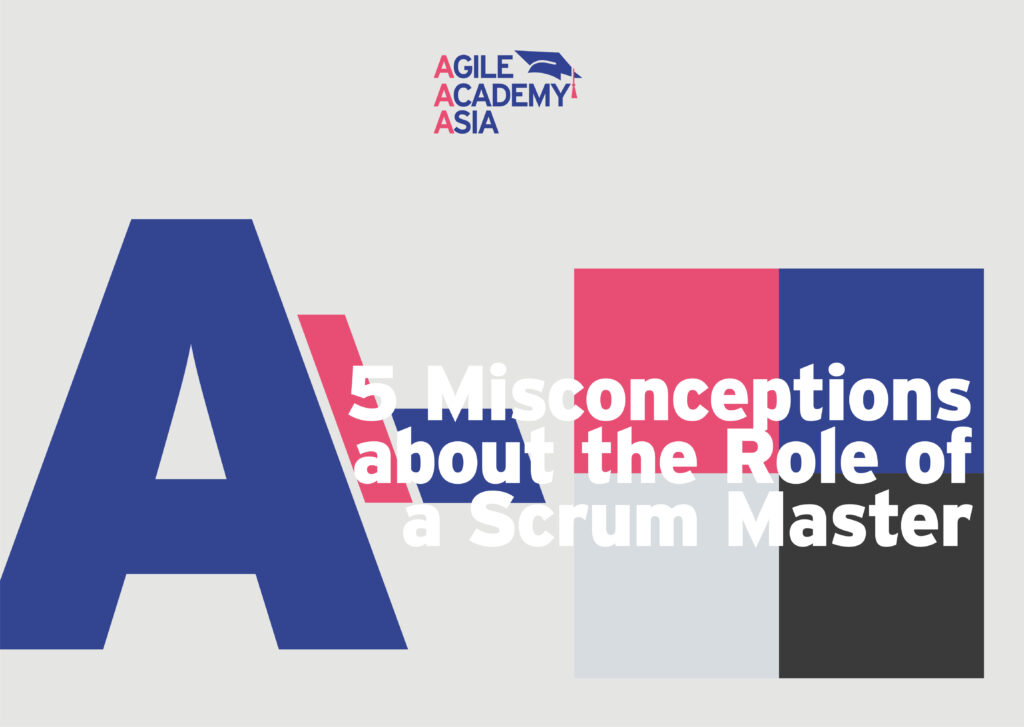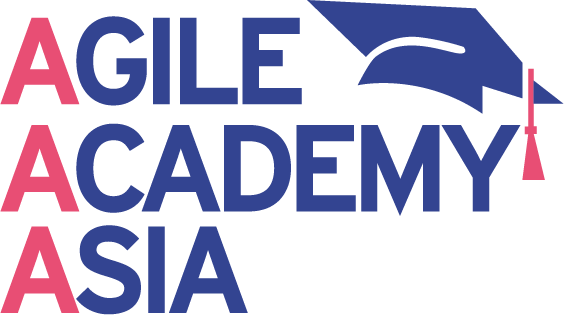
5 Misconceptions about the Role of a Scrum Master
The role of a Scrum Master is an integral part of the Scrum framework, facilitating the team’s work, helping to remove impediments, and providing guidance and support. However, many still misunderstand what a Scrum Master does and their responsibilities. Here are five common misconceptions about the role of a Scrum Master.

1. The Scrum Master is not the Project Manager:
They differ in their responsibilities and the way they approach projects. In traditional project management, a Project Manager is responsible for assigning tasks, setting timelines, and managing the project budget. However, in agile project management, the Scrum Master is accountable for facilitating collaboration and communication and helping the team adhere to the Scrum process. The Scrum Master also serves as a coach and mentor to the team, helping them to become more effective and productive. By providing guidance and support, the Scrum Master ensures that teams can deliver successful projects.
2. The Scrum Master is the Team Leader:
In Agile, there is no leader in the traditional sense. The role of the Scrum Master is to facilitate the team in the Scrum framework, ensuring that they are empowered to make decisions and take ownership of their tasks. The Scrum Master helps to remove any impediments that may be preventing the team from completing their tasks on time and encourages collaboration, communication, and self-organization within the team. The team is responsible for all decisions and product delivery, although the Scrum Master may provide guidance and support when needed.
3. The Scrum Master is Responsible for Assigning Tasks:
The Scrum Master is responsible for facilitating the Scrum process and creating an environment of collaboration and trust within the team. The Product Owner is responsible for creating product backlogs and priorities and defining the scope of each sprint. The Scrum Master and Product Owner work together to help the team self-organize and assign tasks within each sprint while ensuring that the team is working towards the organization’s goals.
4. The Scrum Master is a Technical Role:
The Scrum Master is not technical and should not be confused with a developer. Instead, they are responsible for facilitating the team’s work, removing impediments, and providing guidance and support to ensure the project’s successful delivery. Understanding IT-related topics are advantageous, but the Scrum Master’s role is distinct from a developer’s role. They coach the team in agile practices and help the team self-organize and continuously improve.
5. The Scrum Master is responsible for the success or failure of the project:
The Scrum Master has an important role to play in the team, facilitating the Scrum process and helping the team to work together most effectively. However, the ultimate success or failure of the project rests with the team, who are responsible for delivering on the project goals and objectives.
The role of a scrum master is critical in helping to guide and support the team, ensuring that the team is focused and productive. The scrum master also serves as a mediator between the team and the project stakeholders and acts as a facilitator to ensure that the team is able to work together effectively. Without the scrum master, the team would not have the guidance and support that it needs to effectively deliver the project. Furthermore, the scrum master is responsible for assessing progress and identifying any areas that require improvement or that need to be addressed. As such, the scrum master is critical in making sure that the project is delivered on time and to the highest standard.
Most frequent questions about the role of the Scrum Master:
Do I need a scrum master?
Agile Academy Asia recommends that companies and teams consider engaging a scrum master. The presence of a scrum master can bring a wealth of benefits to a project, such as helping to ensure the project is delivered on time, to the highest standard, and with greater efficiency. Ultimately, the decision is always with the company and the team. However, the value of having a scrum master is undeniable and will pay back in dividends.
What are the main characteristics of a scrum master?
The main characteristics of a scrum master include the following:
- Facilitates Scrum Ceremonies: The Scrum Master should ensure that Scrum ceremonies, such as sprint planning, daily stand-up, sprint reviews, and sprint retrospectives, are conducted and productive.
- Removes Obstacles: The Scrum Master should identify obstacles and impediments to the team’s progress and work to remove them.
- Serves as a Coach: The Scrum Master should provide guidance and coaching to the team and other stakeholders to help them understand and embrace Scrum values and principles.
- Protects the Team: The Scrum Master should protect the team from external distractions and interferences that may disrupt their workflow.
- Supports Continuous Improvement: The Scrum Master should support the team in identifying areas for improvement and helping to implement changes that will improve the team’s performance.
- Builds a High-Performing Team: The Scrum Master should help to create a high-performing team by building trust, fostering collaboration, and helping to resolve conflicts.
- Provides Transparency: The Scrum Master should ensure that all stakeholders have access to the team’s progress, including sprint results and product backlog items.

Can a scrum master have multiple roles?
Yes, a scrum master can have multiple roles depending on the project and the team’s needs. However, we usually recommend having a dedicated scrum master to ensure that product owners, developers, or other stakeholders have different responsibilities. At Agile Academy Asia, we are dedicated to helping companies find the best solution for their individual needs, as the best approach may vary from company to company.
Can Scrum Master work in multiple teams?
Yes, a scrum master can work in multiple teams as long as they can do so. It is important to ensure that the role of the scrum master is utilized fully when working in multiple teams. Generally, the role of a scrum master is a full-time responsibility and having a dedicated scrum master for each team may be necessary to support the scrum framework. But we have seen companies with Scrum Master successfully having multiple teams.
Author:
Pjotr Steinmetz
Founder & Owner
Pjotr Steinmetz is a leading expert in Agile principles, with a deep understanding of how to successfully transition companies of all sizes into Agile frameworks. As the founder of Agile Academy Asia, Pjotr provides lectures, training, workshops and consulting sessions on the mindset of Agile and on various Agile–driven projects. He is also a Mentor at different accelerators, incubators and universities, where he trains and guides students and Startups in the benefits of Agile. With extensive experience in the Netherlands and Asia, Pjotr is at the forefront of helping companies in their Agile journey.

Book a free 30 minutes consultation with him to talk about Agile training, consulting, and transformations.
